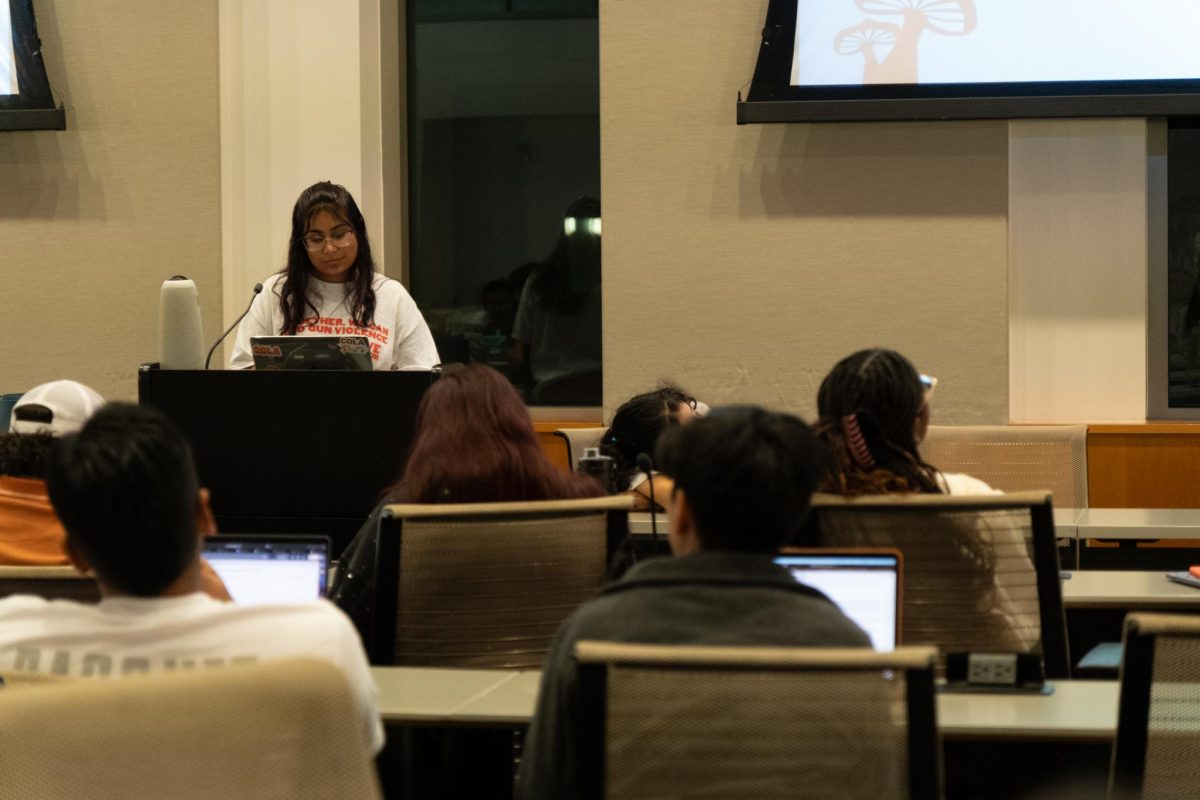Richard Hanania, a well-known conservative figure and visiting scholar at UT, wrote several articles years ago under the pseudonym “Richard Hoste,” that the Huffington Post characterized as racist and misogynistic in an investigation published on Aug. 4.
According to the Huffington Post’s investigation, in the early 2010s, Hanania made racist statements against Black and Hispanic communities in his articles, including calling interracial relationships “shameful.” The investigation notes he also advocated against women in political offices and women’s liberation and held other misogynistic views.
“I see no future at the University of Texas at Austin for (Hanania),” sophomore business major Ramya Nambala said. “We are such a diverse campus, and it’s very important to have at the very least some basic level of respect for every single student on campus, regardless of their background. If it’s proven that someone doesn’t have that, then they shouldn’t be a professor.”
Hanania was previously listed as a visiting scholar at the Salem Center for Policy under the McCombs School of Business. He has since been removed from the center’s website, and the Fellows and Scholars page is currently down.
“It’s not representing the interests of POC students,” computer science sophomore Nayeon Kim said. “It’s actually threatening them … This isn’t something that should be happening in 2023.”
The Salem Center for Policy did not respond to requests for comment.
“Of all the cancellation attempts, the best one is University of Texas, where my fellowship already ends before fall (i.e. this month) and I’ve already received my last paycheck,” Hanania tweeted on Aug. 8.
On Aug. 6, two days after the publication of the Huffington Post’s article, Hanania posted a response in his newsletter.
“Recently, it’s been revealed that over a decade ago I held many beliefs that, as my current writing makes clear, I now find repulsive,” Hanania wrote. “Growing older is ideally a process of trying to suck less and less over time, and one thing I’m secure in is the belief that I’ve at least been making progress on that score.”
However, Hanania received criticism for maintaining problematic views. For example, a tweet posted earlier this year called for increased policing, incarceration and surveillance of Black citizens.
“I believe that he is very much the same person,” Kim said. “If he tweeted something racist in May, what are the probabilities that he might have drastically changed within those few months and suddenly came to recognize that his views were unjust.”
Hanania is still active on the site X, formerly known as Twitter, and promoting his new book amid the controversy.
“The HuffPost journalist who wrote the hit piece on me is still contacting my publisher every day to get them to cancel my book,” Hanania said on social media. “Now even more is at stake. The fate of cancel culture, and the ability of journalism centered around personal destruction to have an impact on the real world.”
Hanania and various spokespeople at the University did not respond to requests for comment.
Editor’s note: Changes have been made to this article in order to properly credit The Huffington Post for findings in their investigation about Hanania. The Texan regrets this error.




















